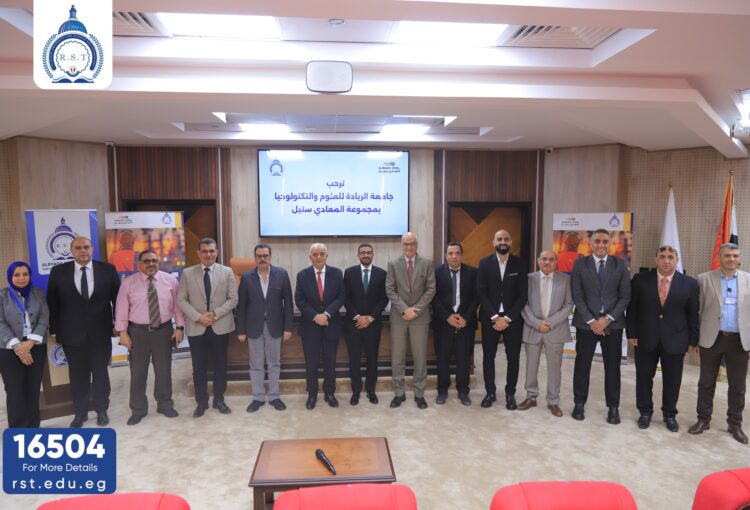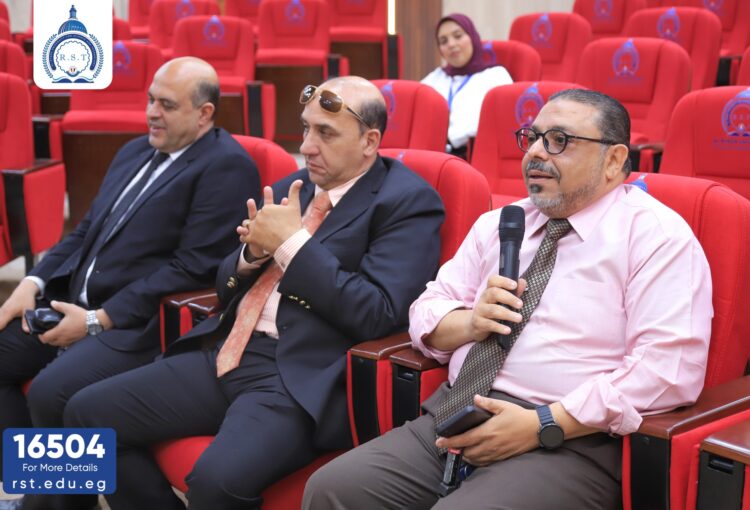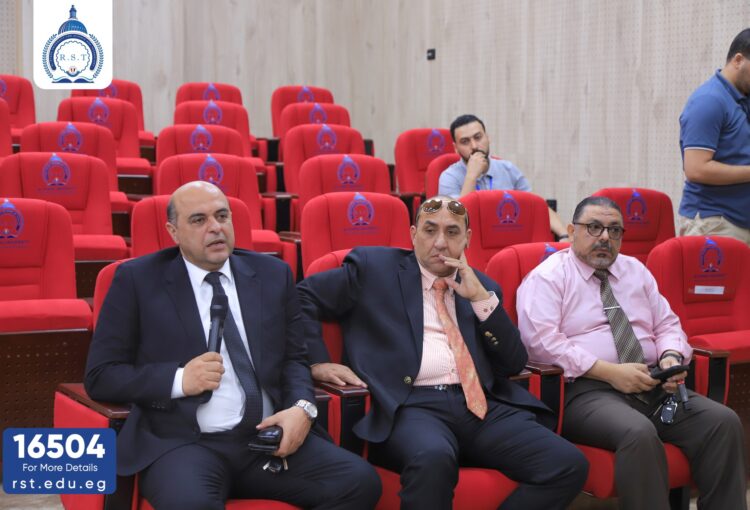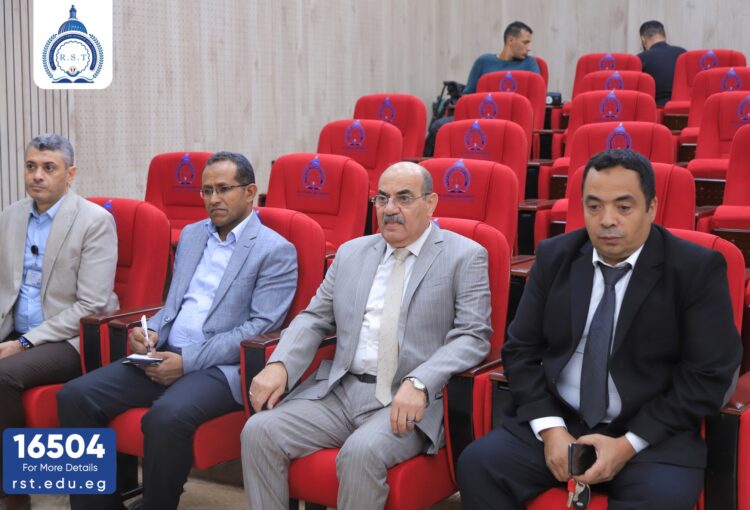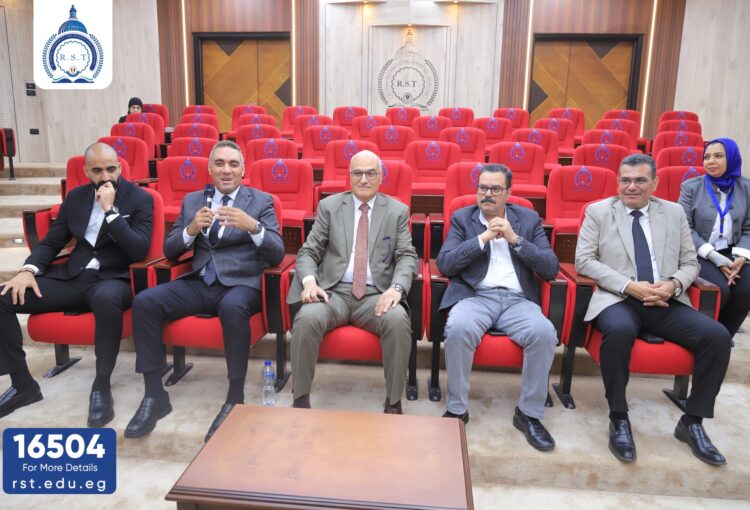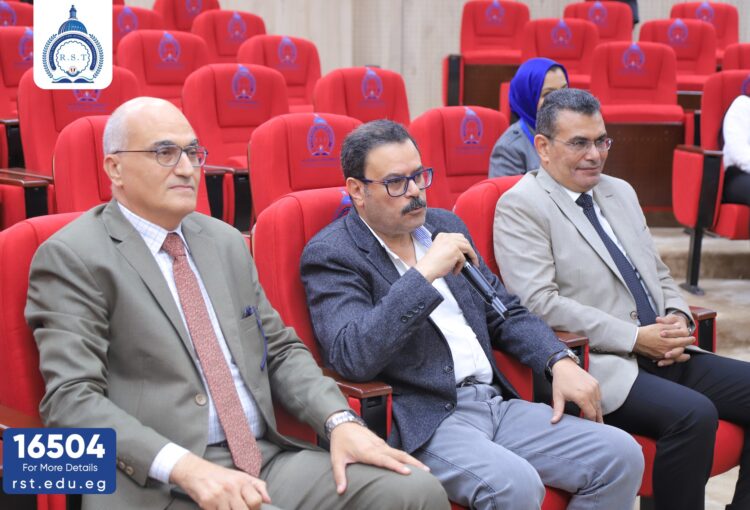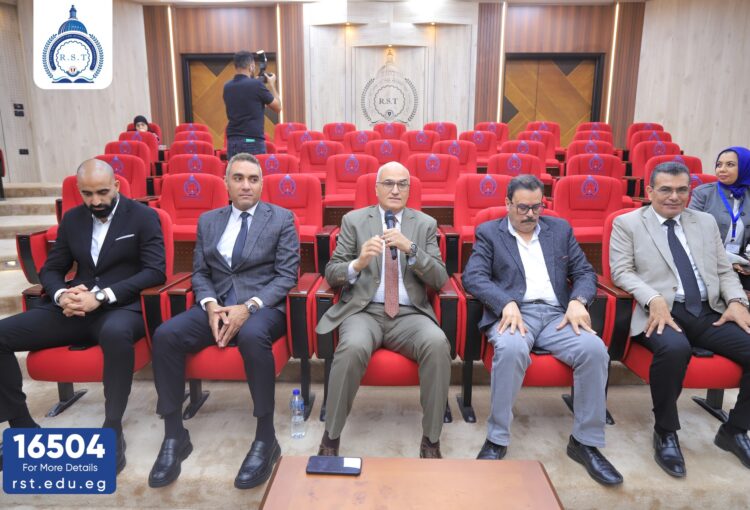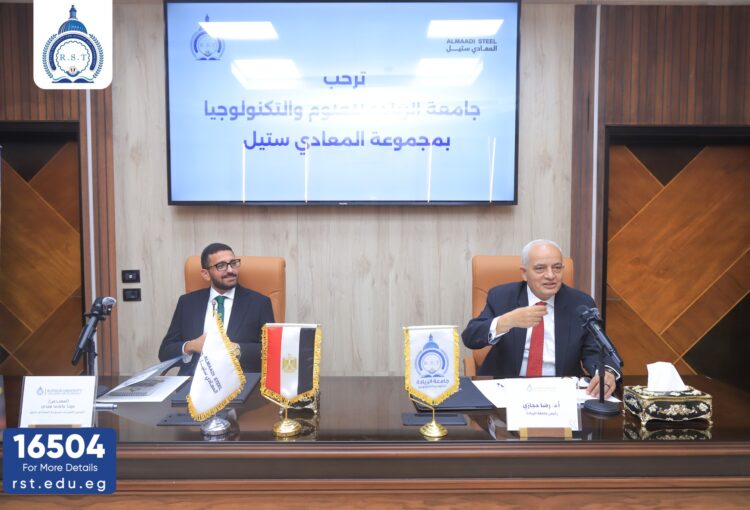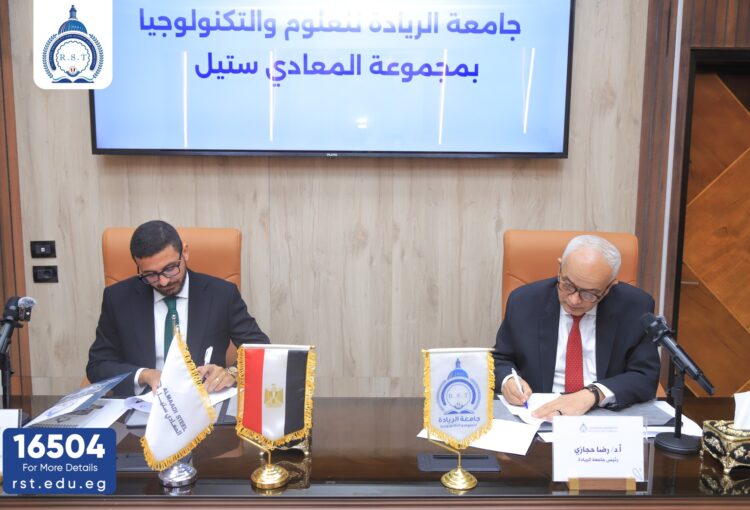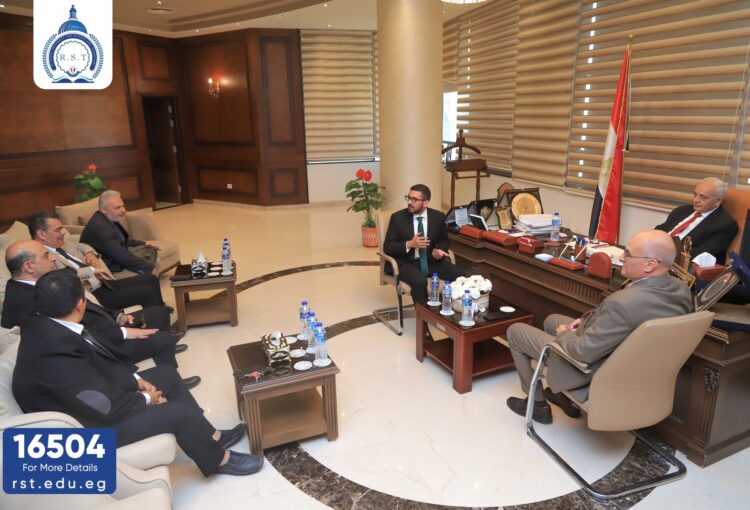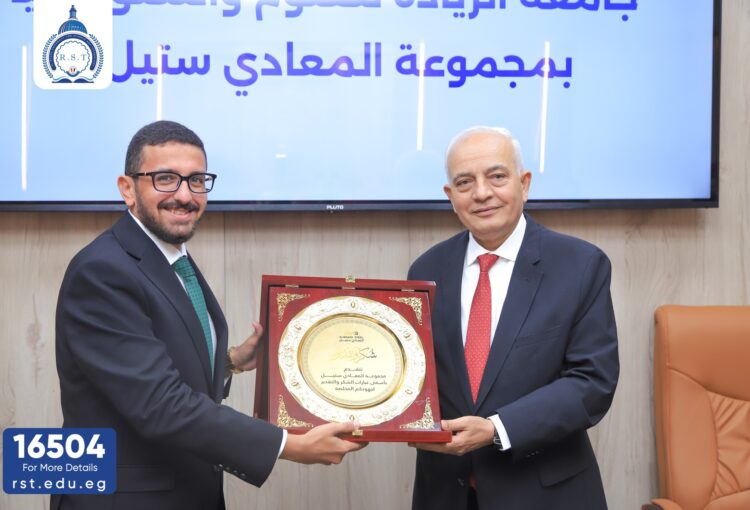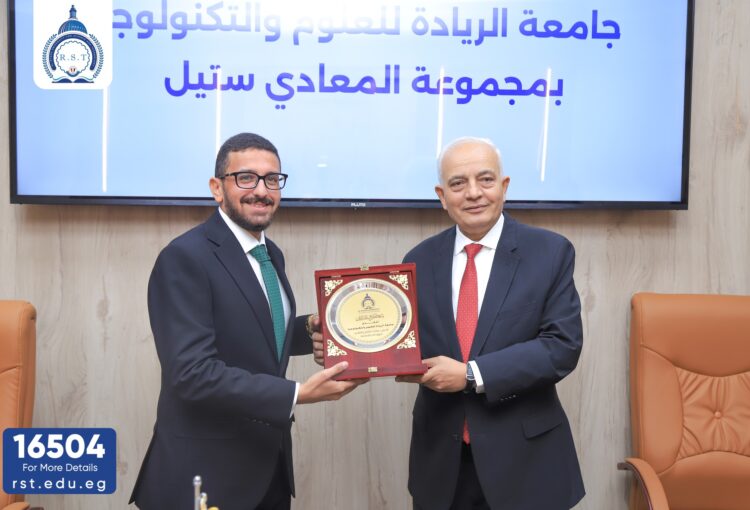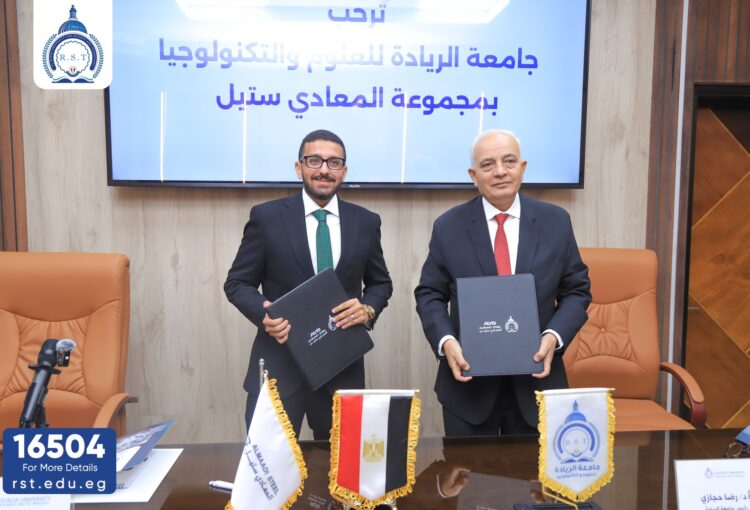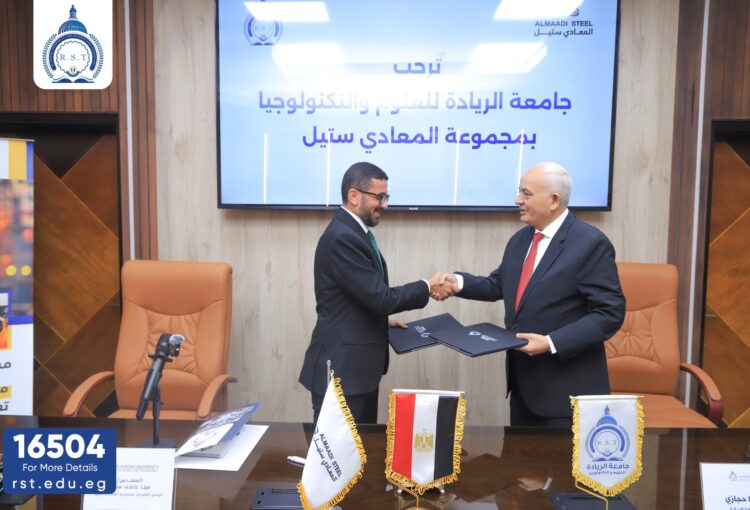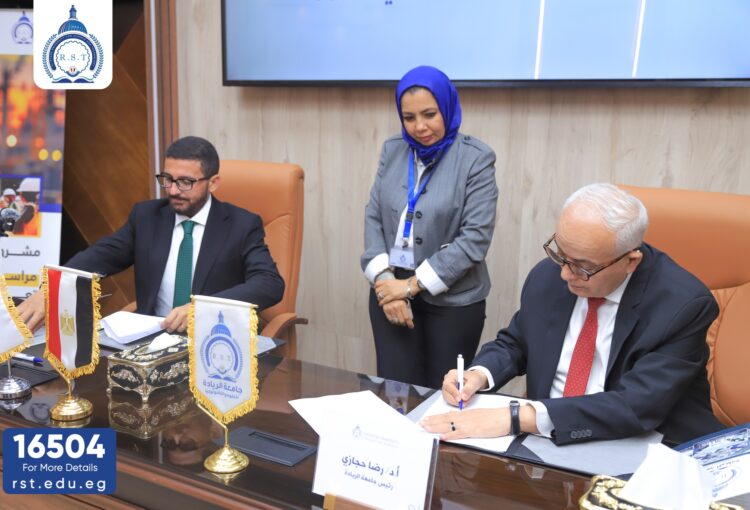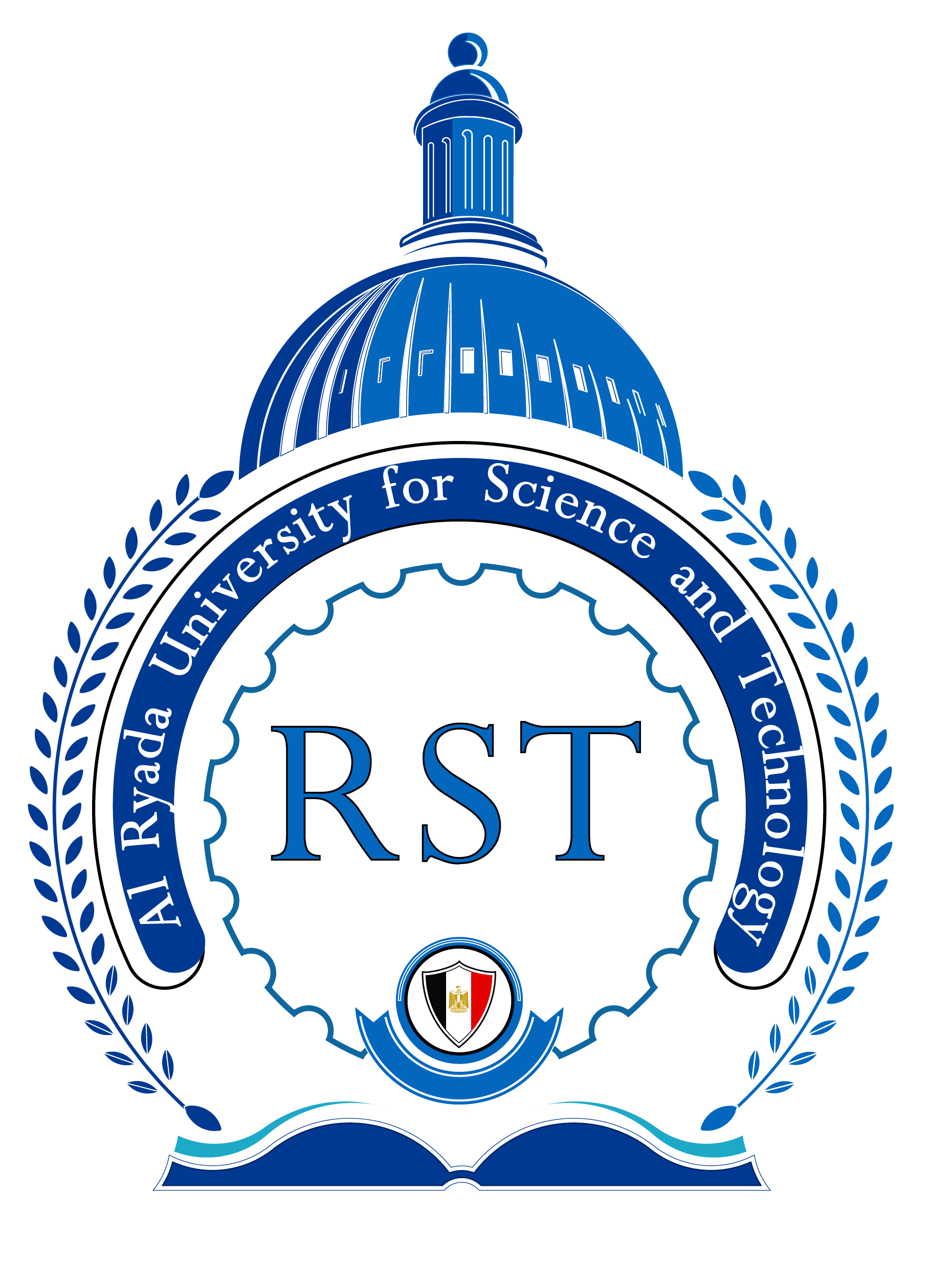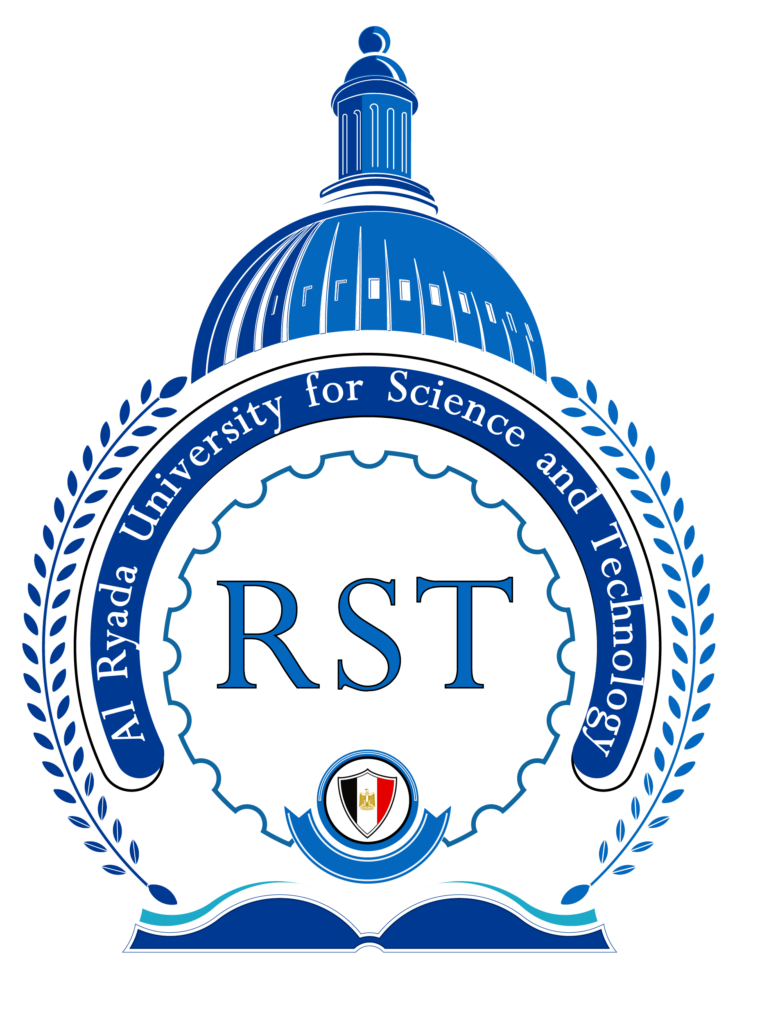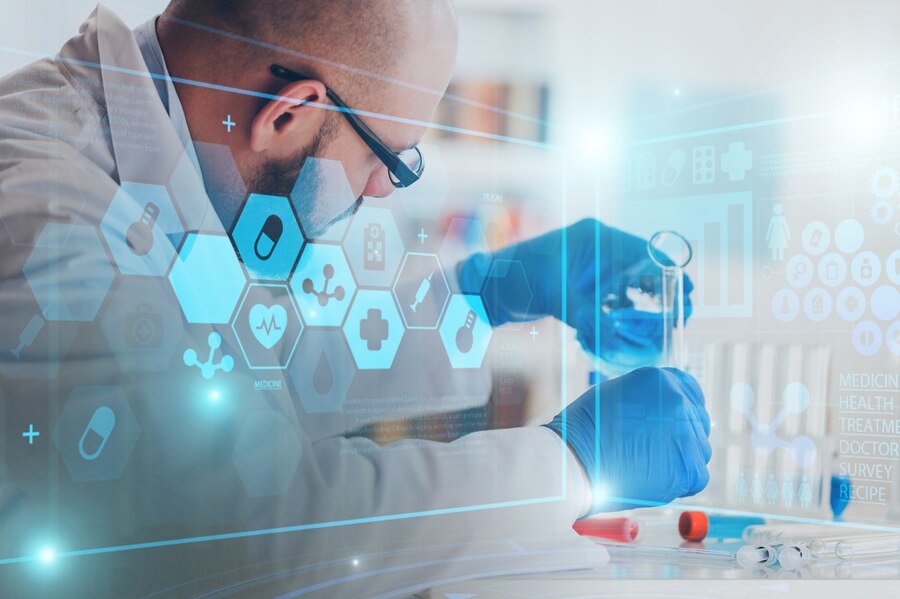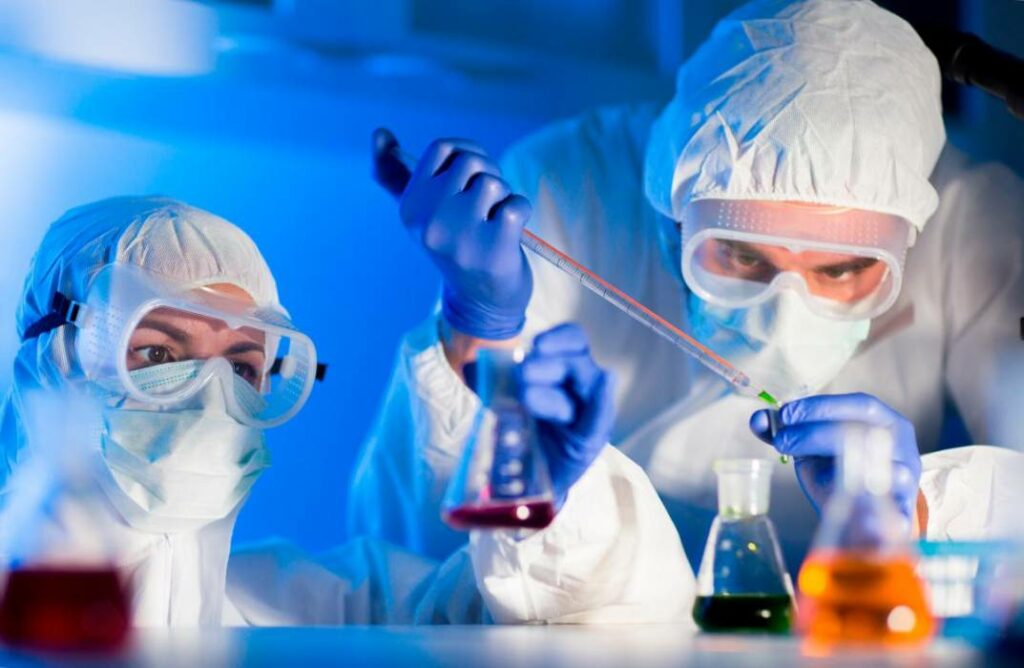Cooperation Protocol between Al-Ryada University (RST) and Maadi Steel (ALMS) to train students and prepare them for the labor market
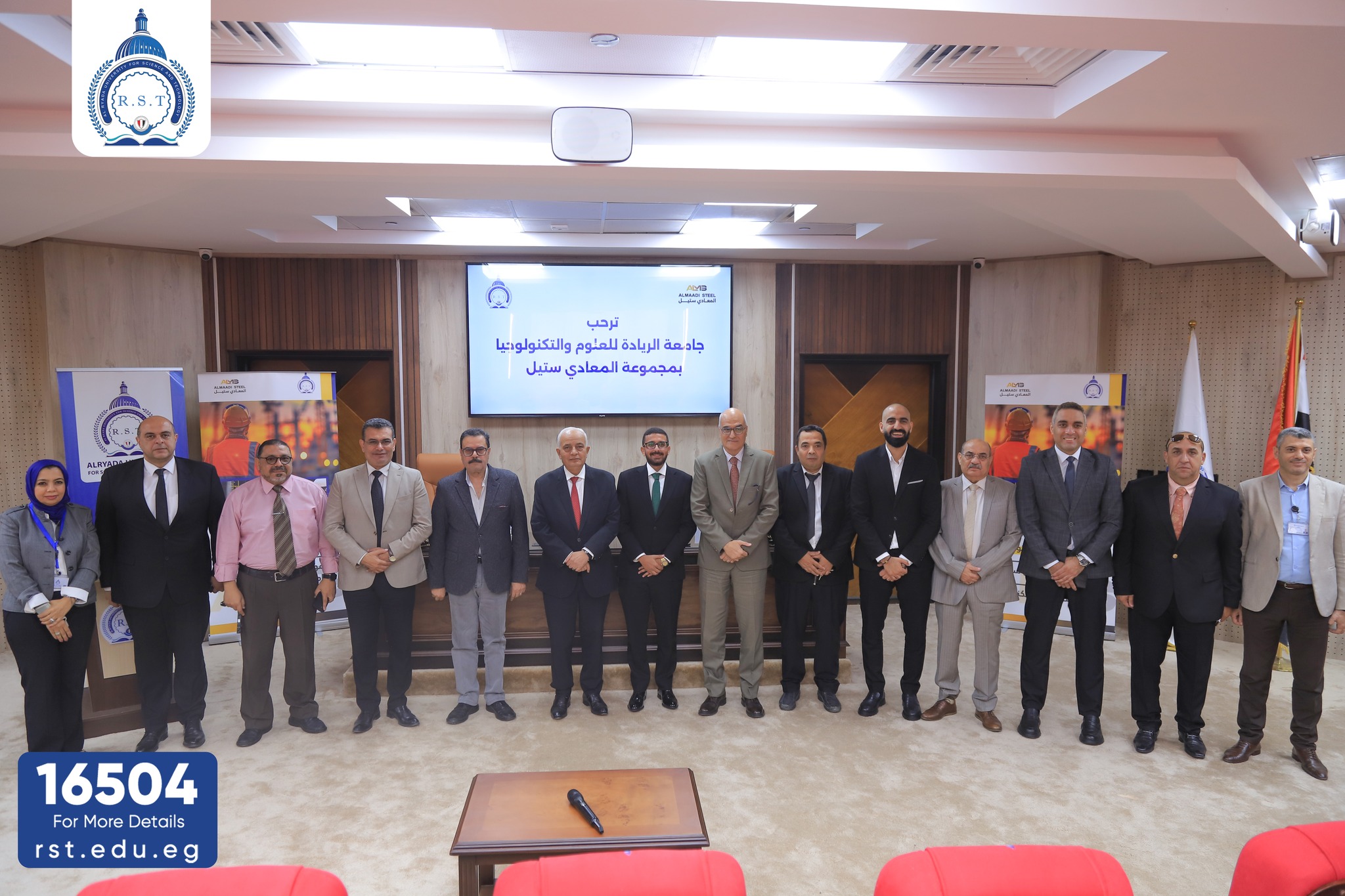
As part of its continuous efforts to link academic learning with practical application and enhance students’ training opportunities, Al-Ryada University for Science and Technology (RST) signed a Cooperation Protocol with Maadi Steel Group (ALMS), aiming to train and qualify students and graduates for the labor market, support them in becoming entrepreneurs, and strengthen opportunities for scientific, cultural, and academic exchange as well as participation in graduation projects.

It was signed on behalf of the University by Prof. Dr. Reda Hegazy, and on behalf of the group by Eng. Mina Hendy, Chief Executive Officer of the group.
The signing ceremony was attended by:
Prof. Dr. Ihab El-Saeed, Vice President for Postgraduate Studies
Prof. Dr. Mohamed El-Sherbiny, Vice President for Education and Student Affairs
Prof. Dr. Yehia El-Helougy, Dean of the Faculty of Computers and Artificial Intelligence
Prof. Dr. Farag Abdel-Monem, Dean of the Faculty of Physical Therapy
Prof. Dr. Amr Sami, Dean of the Faculty of Business Administration
Prof. Dr. Mohamed Kamel, Dean of the Faculty of Engineering
Mr. Hassan Ammar, University Secretary-General


Automation of production lines
Use of new and renewable energy sources
Applications of artificial intelligence in industrial fields
This will be achieved through training courses and workshops provided by the group for students throughout their academic studies.

